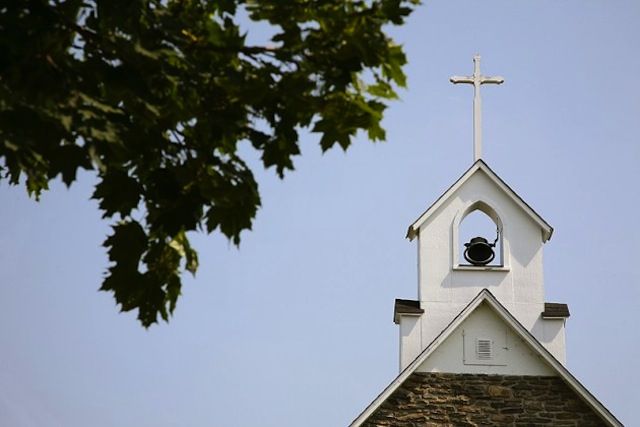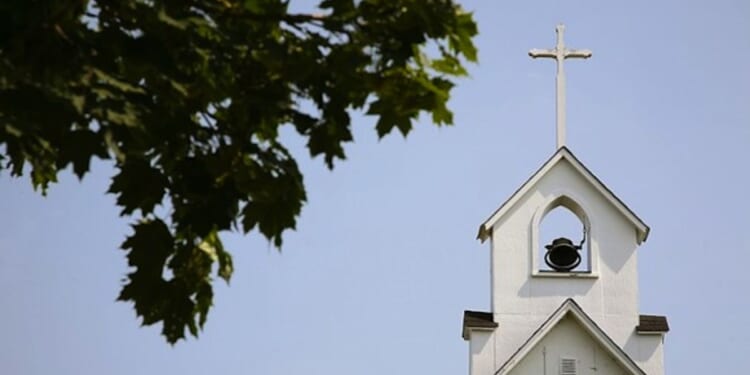
The United Methodist Church could face a “seismic shift” if next week’s business session approves sweeping measures to relax long-held denominational restrictions and policies on homosexuality, an outgoing leader said Wednesday.
On the ballot are proposals to drop restrictions on the roles available to LGBTQ people in the denomination, to eliminate policy language calling homosexuality “incompatible with Christian teaching,” and to establish a “regionalized” structure letting various geographic areas manage and vote on how to apply and adapt church rules for their regions.
The group, an association of churches that comprises America’s second-largest Protestant denomination and whose membership extends around the globe, lost 24% of its more than 30,000 congregations by the end of last year amid disputes over homosexuality in the church, a study revealed in January. Congregations in Estonia, France, Bulgaria, Slovakia and Kenya have also exited the UMC in recent years.
The majority of the departing congregations wanted to retain the established rules that bar gays from ordained ministry and prohibit same-sex marriage, while progressives have for years sought change. The conflict has led to lawsuits over who owns church properties and demands from some local conferences — the equivalent of a diocese — that departing congregations pay millions of dollars as an “exit fee” in order to retain church facilities they had previously built and paid for.
The departures are hurting the denomination’s bottom line. In February, UMC said it would propose a budget 43% lower than its previous quadrennial spending plan. This year, delegates will be asked to approve a $346.7 million budget, down from $604 million for the previous four-year period.
Bishop Thomas J. Bickerton, president of the UMC’s Council of Bishops, in an address preceding next week’s General Conference in Charlotte, North Carolina, said approval of any or all of these measures would “represent one of those seismic shifts in who we are as a denomination.”
A total of 95 active and retired bishops attended Mr. Bickerton’s presentation, held in advance of the 10-day business session beginning Tuesday.
The bishops have no vote at the General Conference business session — delayed more than once since the first postponement in 2020 during the global COVID-19 pandemic — but preside at plenary sessions of the event, pray with delegates and preach during worship gatherings, the official United Methodist News service reported.
“We can’t vote, but we can convene and influence, inspire and pray,” Bishop Bickerton said. “And what that lends itself to is a deeper understanding and appreciation of our role as bishops here in Charlotte.”
He said the church should retain its focus on making Christian disciples “for the transformation of the world.”
He said if the church is able to do that, “we stand a very good chance of being able to see the next expression of United Methodism beginning to emerge. Needless to say, this is a moment in time when we will not only see some of the dust settle, but we’ll also see new dust storms arise.”












